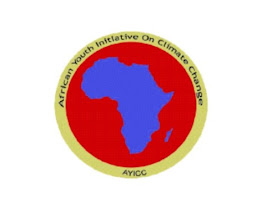AFRICAN STAKEHOLDERS CONSULTATIVE FORUM FOR UNFCC & RIO+20 ON THE SIDELINES OF SPECIAL UNEP GC/GMEF
On the 19th of February, 2012, the Pan African Climate Justice Alliance (PACJA) held a 3 hour consultative forum on the sidelines of the 12th Special UNEP Governing Council, GMEF. Taking into consideration that COP 17 did NOT offer concrete pathways to solve the climate change crisis, PACJA raised an appeal to the delegates to the Governing Council to effectively strategize on means of engaging each other on a common platform to discuss issues as the climate change and seek mutual understanding on the green economy so that the world may meet the expectations of sustainable development. PACJA pointed out that RIO+20 will not fix the global financial and climate change crisis but the GC will provide and avenue that global leaders, civil society and development partners to utilize and find distinct roles for all in the countdown to RIO+20 to discuss the issues of sustainable development and COP 18 later in the year.
As we mark the 20 years since the landmark of the United Nations Convention on Environment Development in 1992, up to more than seven billion people are experiencing the effects of the worst economic and environmental crisis in the global history. We face a huge rise of social inequalities and extreme poverty, with climate-related hunger affecting directly over one billion people every day. Climate Change, which has emerged over time as the biggest threat to the survival of humanity and health of the planet, has gained significant space in international diplomatic and political interactions. “Resources and distance are some of the constraints that Africans face as we try to mitigate and adapt to climate change” Mithika Mwenda the continental secretariat to the Pan African Climate Justice Alliance stressed as he gave his welcoming speech.
The stakeholder consultative forum was meant to give highlights of what is most important in the Governing Council and the RIO+20 and how African nations need to strategize to achieve a just sustainable future.
What did we ‘gain’?
The operationalization of the GCF was a huge boost to African nations to provide the necessary funds so that Africa can address to its urgent needs. However this has its own impediments since developing nations have NOT yet acknowledged to the first track of $30 billion and up to $100 billion annually.
The Kyoto Protocol did not expire however it did not become healthier and has thus lost its strength towards its role in addressing climate change.
There is need to incorporate the context of the Common But Differentiated Responsibility (CBDR) so that developing nations can address climate change in their own capacity there within. “After the COP meeting my enthusiasm dwindled since it is the failure of the world to take issues into their own hands that has made climate change be so disastrous for LDCs and SIDs” Augustine Njamnshi “The fact that the other person keeps on telling you that ‘I do not owe you’ should be taken as an understatement by all developing nations” he further explained.
Nelson Mufu who works with the Millennium Campaign outlined that there is dire need to have an outcome that delivers in terms of poverty and sustainable development more intensively on poverty eradication, access to renewable energy, address the concerns of forest degradation, degradation and other developmental issues aggravated by climate change. He noted that “No one will come to make us understand these processes. We need to make ourselves understand these United Nations processes.”

Comments
Post a Comment